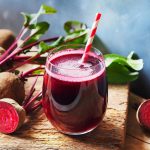
A parent’s mental health appears to influence their kids’ chances of developing anxiety, ADHD and other behavioral disorders, a new study says. Children were more than four times as likely to develop severe ADHD (attention-deficit/hyperactivity disorder) if their caregiver had poor or fair mental health, compared to kids of caregivers in excellent mental health, researchers found. Likewise, kids’ chances of severe anxiety were nearly six times higher if their caregiver reported poor mental health, according to results published late last year in the journal Pediatric Reports. “Our study highlights the lasting impact of caregiver mental health on childhood disorders,” particularly anxiety, behavioral problems and ADHD, senior researcher Lea Sacca, an assistant professor of population health and social medicine at Florida Atlantic University, said in a news release. “The COVID-19 pandemic, which increased the time children spent with caregivers, revealed a strong connection between severe childhood anxiety and lower caregiver mental health, suggesting that these effects may be long-term rather than temporary,” she added. The new study aimed to track behavioral, mental and developmental problems among 6- to 11-year-olds between 2019 and 2022, using annual federal survey data on child health. Overall, the survey gathered data on nearly 52,000 children. It found significant associations between caregivers’ mental health and children’s risk of mental or behavioral disorders. For example, 2020 survey data showed that caregivers with poor… read on > read on >


















-150x150.jpg)








-300x200.jpg)










